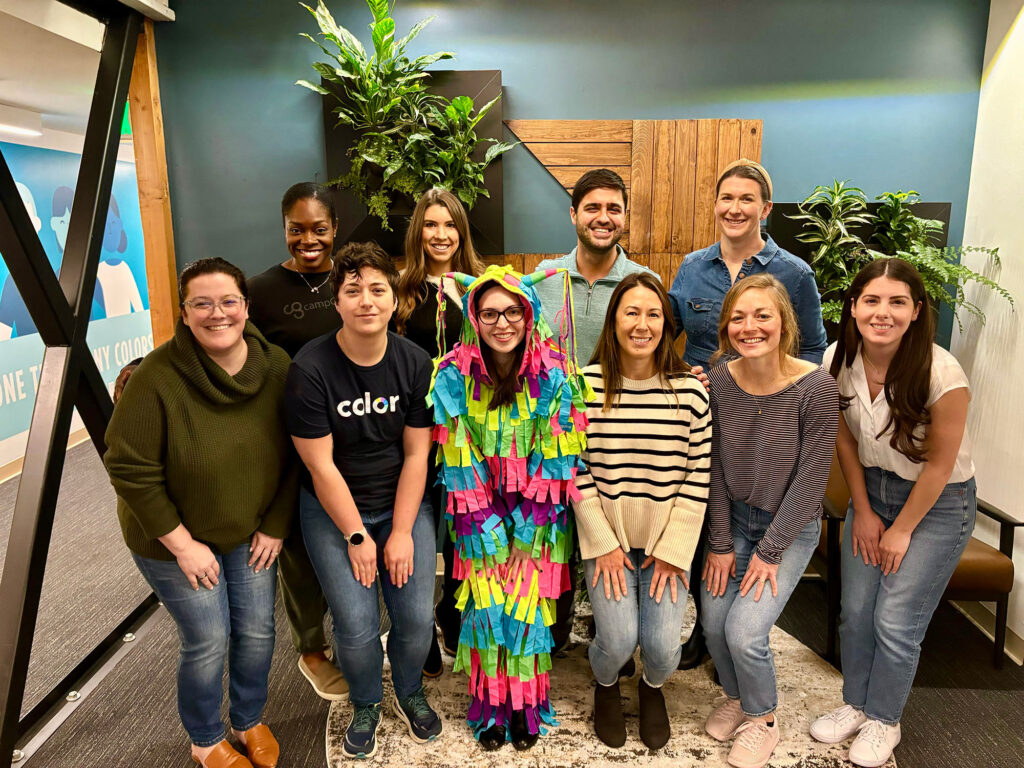News & Articles
Bridging the health equity gap through population genomics: Honoring Black History Month
Adriana Boateng-Kuffour
Two years ago, our CEO Othman Laraki joined Dr. Valerie Montgomery Rice, the president and dean of Morehouse School of Medicine, in authoring an op-ed in the Atlanta Journal-Constitution arguing “every healthcare organization, institution and entity must redouble its commitment to expanding research on underserved populations and ensuring these communities’ access to healthcare’s genomics-based future.” Color remains committed to supporting underserved communities by ensuring that data-driven healthcare, powered by precision health, can positively impact everyone.
African Americans still have the highest mortality and shortest survival rate of any racial or ethnic group in the United States. The age-adjusted mortality rates for stroke and heart disease have declined by 61% and 70% nationally since 1975.1 However, this trend does not apply to African Americans. Compared to non-hispanic whites, the age-adjusted mortality rates for African Americans are 20% and 40% higher for heart disease and stroke, respectively.¹ In addition, African American women are more likely to develop aggressive breast cancers, and are 40% more likely to die from the disease.² Later detection, unequal access to care, and later stage diagnosis contribute to this disparity. By adding population genomics as a foundational layer of healthcare, we can help bridge this health equity gap.
Since the publication of that opinion piece, Color has participated in projects in an effort to improve minority representation in medical research and to increase access to genetic testing across all communities. We believe that these steps help people make better, more informed decisions about their health, but there is more work ahead. As we honor black history this month, we’re sharing some of our work that is helping to bridge the health equity gap and build a better healthcare future that works for everyone.
African Cancer Genomics Initiative

Color is collaborating with Dr. Olufunmilayo Olopade from the University of Chicago to improve breast cancer outcomes and access to quality care in underserved African women. In partnership with academic centers and hospitals across Africa, Dr. Olopade has sampled patients affected with early-onset, high-risk breast cancer to examine the frequency of pathogenic variants in African women. Through this initiative, Dr. Olopade is delivering Color’s end-to-end genetic services to patients across Africa. Starting with her home country Nigeria, Dr. Olopade has assembled a team to handle the entire clinical testing process, from collecting samples to returning results back to patients. To date, more than 200 patients have received genetic testing at two clinics located in Ibadan and Lagos in Nigeria.
All of Us Research Program

In an effort to advance precision medicine, All of Us is a research program run by the National Institutes of Health (NIH) that aims to sequence the genomes of one million participants, 80 percent of which are to come from diverse communities across the United States. To ensure that all participants, regardless of their socio-economic backgrounds, understand their genetic testing results, Color was selected as the program’s genetic counseling resource and is providing the technological backbone for the broader program, building custom software and tools to integrate data from all the genome centers, standardize reporting across the program, and ensure all results are returned in a unified way. To facilitate a better participant-physician relationship, Color genetic counselors will also help connect participants to healthcare providers who can address their particular health risks. In addition, Color will offer tele-counseling and educational materials in multiple languages to enhance genetic health literacy and improve participant comprehension of their genetic reports. People of every race, ethnicity, sex, gender, and sexual orientation are welcome to join the research program to help expand medical discovery for underserved and underrepresented groups.

Partnering with top research hospitals and clinics, Color for All endeavors to ensure genetic testing is available to all women and men, regardless of their financial situation. Partners include Stanford Center for Inherited Cardiovascular Disease, which specializes in the care of patients and families with genetic disorders of the heart and blood vessels; and Morehouse School of Medicine, which is dedicated to increasing the diversity of the health professional and scientific workforce and addressing primary healthcare needs through programs in education, research, and service, with emphasis on people of color and the underserved urban and rural populations in Georgia and the nation.
References
1. Mensah GA. Cardiovascular Diseases in African Americans: Fostering Community Partnerships to Stem the Tide. American Journal of Kidney Diseases. https://www.sciencedirect.com/science/article/pii/S0272638618308321. Published October 18, 2018. Accessed February 12, 2020.
2. Breast Cancer Facts & Figures 2019–2020. American Cancer Society. https://www.cancer.org/content/dam/cancer-org/research/cancer-facts-and-statistics/breast-cancer-facts-and-figures/breast-cancer-facts-and-figures-2019-2020. Published 2019. Accessed February 12, 2020.



